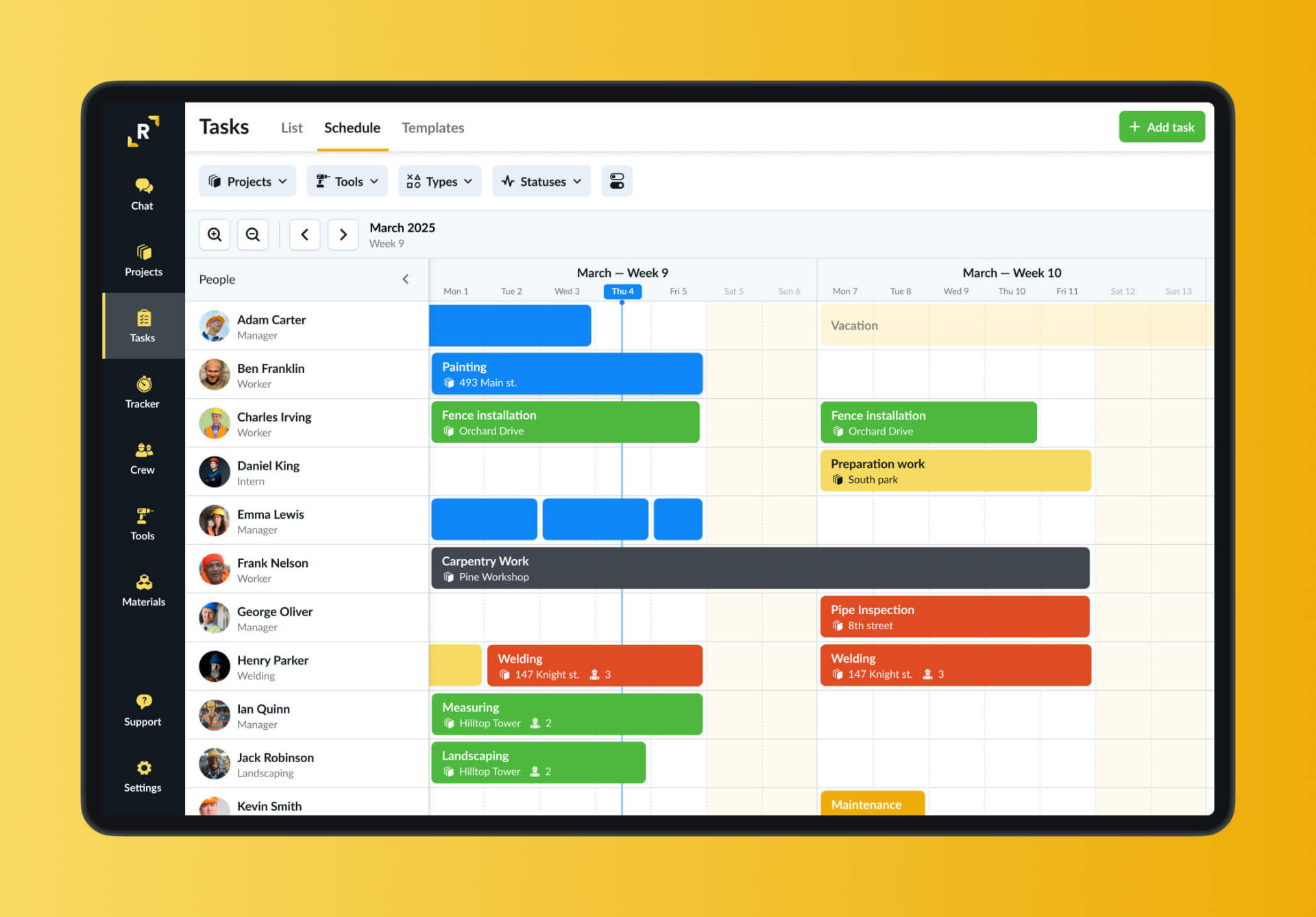How to Win More Construction Bids as a Subcontractor Without Dropping Your Price
Winning construction bids is not about offering the lowest price. It is about proving that you can deliver results reliably, without risk, and with professional organization. For subcontractor companies with 5 to 50 workers, following a clear operational checklist will increase your chances of winning contracts — without lowering your price.
If you want to win more work, you need to bid smarter, not cheaper.
Table of Contents
Essential Checklist for Winning More Construction Bids
1. Prepare Complete and Professional Bid Packages
Your bid package is often your first impression. An incomplete, unclear, or inaccurate proposal makes it easy for the client/general contractor to reject your offer.
- Clearly describe the scope of work (what you will and will not do)
- Provide realistic project timelines with start dates, milestones, and handovers
- Break down labor, material, and equipment costs accurately
- Check all figures carefully to avoid mistakes or missing sections
A complete and well-organized bid package builds immediate trust.
2. Build and Maintain a Strong Company Reputation
Reputation often matters more than price. General contractors prefer subcontractors they can trust to finish the work properly.
- Collect testimonials and references from past construction projects
- Prepare a portfolio with photos, project sizes, and key results
- Respond quickly and clearly to any Requests for Information (RFI) during the bidding process
- Close every project with clear documentation and client sign-offs
A strong track record shows you are a safe choice for future projects.
3. Understand the Client’s Priorities
Many subcontractors submit construction bids without considering what matters most to the client.
Understanding the client’s real goals gives you an advantage.
- Ask clarifying questions before finalizing your proposal.
- Identify whether the client cares most about schedule, cost, quality, or safety.
- Suggest specific improvements that help achieve the project goals without cutting corners.
Addressing the client’s priorities directly makes your bid more attractive.
4. Prove Workforce Reliability
The client is not just hiring your company name. They are trusting that your workers will show up, perform safely, and deliver quality results.
- Share details about your workforce’s size, availability, and skills.
- Highlight certifications, safety records, or specialized training.
- Explain your team organization: supervisors, foremen, specialty crews.
Clients want to work with teams they can count on to meet deadlines and standards.
5. Communicate Clearly and Consistently
Poor communication leads to misunderstandings, delays, and cost overruns. General contractors prefer subcontractors who keep them updated.
- Describe how you communicate during projects: jobsite meetings, reports, and daily updates
- Commit to regular reporting on work progress, issues, and changes
- Explain how you escalate problems quickly if needed
Keeping communication organized inside your company is just as important as communicating with the client. Using a tool like Remato allows your crew, supervisors, and office staff to stay connected through structured project channels and instant field updates — keeping everyone informed without lost messages.
Consistent communication shows professionalism and responsibility.
6. Strengthen Internal Management and Tracking
Internal disorganization often causes external project failures.
General contractors notice when a subcontractor cannot manage their own team effectively.
- Track working hours accurately for all workers on every construction site.
- Assign tasks clearly to teams or individuals, and monitor progress daily.
- Document completed work, issues, and changes immediately.
Without strong internal control, even a skilled crew can lose a client’s confidence.
A subcontractor with proven internal systems is seen as lower-risk and more valuable.
To integrate all your operational processes into one place — from workforce coordination to documentation and scheduling — consider using a dedicated ERP for construction management. These systems ensure consistent reporting, planning, and control across all your sites and teams.
7. Be Ready to Mobilize Quickly
In construction, the ability to start work quickly can make the difference between winning and losing a bid.
General contractors operate under tight deadlines and expect subcontractors to be ready.
- Confirm worker and equipment availability before bidding
- Plan site mobilization: materials, permits, site access
- Communicate a clear timeline from contract signing to work start
Fast mobilization demonstrates that you are organized and serious about delivery.
Why Strong Operations Win More Construction Bids
Winning construction bids is not only about offering competitive pricing. It is about reducing risk for the client.
Poor subcontractor management leads to delays, rework, cost overruns, and damages the main contractor’s reputation with investors and owners. General contractors are not just comparing numbers. They are assessing whether hiring you will reduce or increase project risks.
When reviewing subcontractor bids, they are asking:
- Will this company meet deadlines without constant supervision?
- Will they solve problems early and avoid costly delays?
- Will they maintain safe, professional behavior on the construction site?
- Can they handle changes without causing disruption?
Clients expect subcontractors to bring structured management, not just skilled labor.
Good internal practices — including time tracking, task documentation, safety reporting, and daily site updates — are becoming standard requirements in both public and private tenders.
Operational strength is no longer optional. It is expected.
How Remato Strengthens Your Construction Bids

Managing a subcontractor company with 5–50 workers across multiple construction sites is challenging. Without the right tools, it’s easy to lose control of time tracking, task assignments, communication, and daily reporting.
Remato crew management software gives subcontractors real operational control:
- Track working hours accurately and collecting photos by project and task
- Submit daily reports and updates directly from the construction site
- Monitor real-time crew availability and project progress
- Centralize documentation for each project for quick access when needed
When you work with real-time data from the field, you not only manage current projects better — you also build a strong database of actual labor hours, production rates, and issue trends.
This project data allows you to prepare more accurate estimates and stronger construction bids in the future.
Better operations today mean better numbers tomorrow — and more wins down the line.
